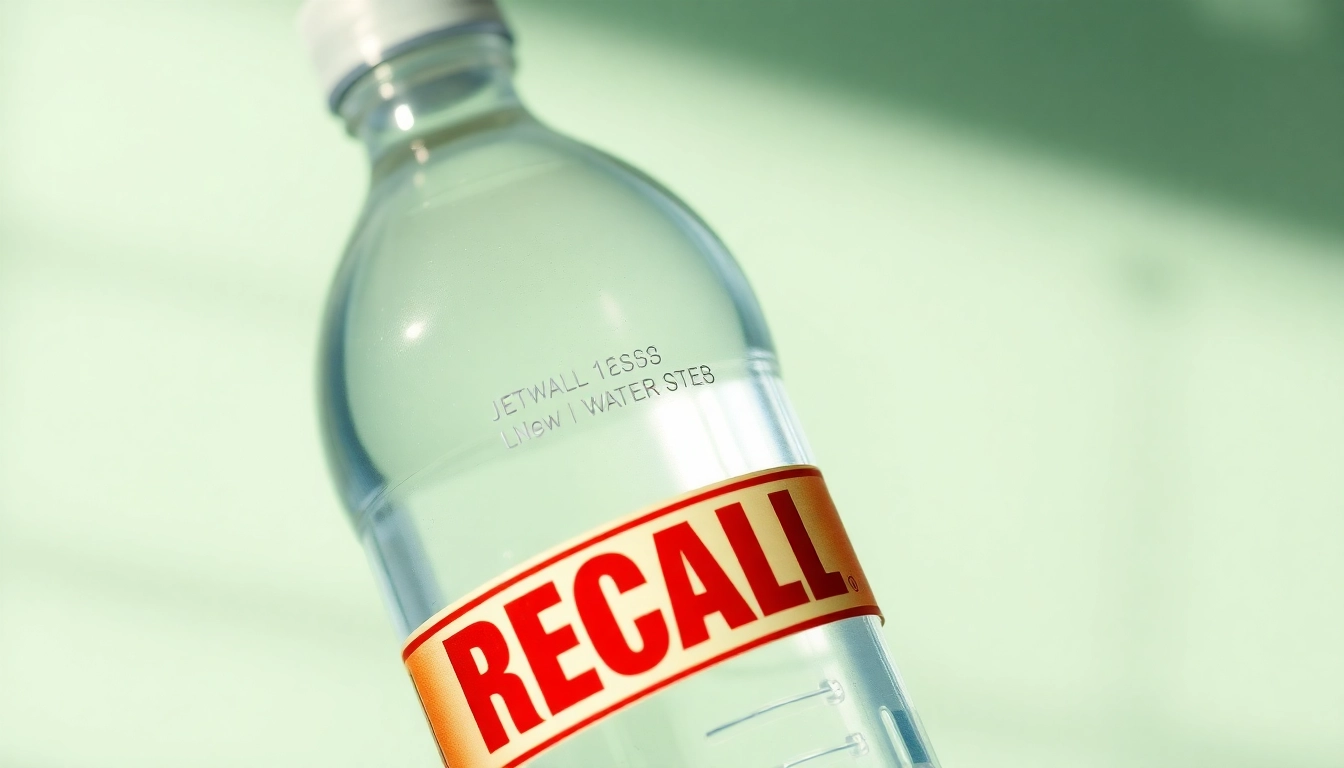Overview of the Fiji Water Recall 2024
The year 2024 has been tumultuous for Fiji Natural Artesian Water, one of the top bottled water brands available globally. A significant fiji water recall 2024 has made headlines due to contamination concerns that have affected nearly 1.9 million bottles. This article delves into the specifics of this recall, exploring what led to the contamination, the health implications for consumers, how to identify affected products, and the next steps for those who may have purchased contaminated bottles.
What Happened During the Recall?
In March 2024, a recall was initiated when the U.S. Food and Drug Administration (FDA) reported high levels of manganese and the presence of certain bacteria in batches of Fiji water. The company, Natural Waters of Viti Limited, acted swiftly to pull nearly 79,000 cases of 500 mL bottles from shelves nationwide, highlighting its commitment to consumer safety.
Details on Contamination Issue
The thorough testing conducted revealed that manganese levels exceeded safe limits established by health guidelines. Additionally, three types of bacteria were detected, raising concerns about the safety of the affected water. Manganese, while an essential mineral, can be harmful in elevated amounts, particularly to vulnerable populations like infants and pregnant women. The detected bacteria are known to pose health risks, making immediate action necessary to mitigate potential harm.
Key Dates and Timeline for the Recall
The recall process unfolded in a series of critical steps:
- March 3, 2024: The recall was officially announced following preliminary testing results.
- March 4, 2024: The FDA published its findings, recommending that consumers check their bottles and avoid consumption.
- March 5, 2024: Affected cases were removed from retail shelves, and communication efforts began.
- May 28, 2024: Ongoing updates were issued as more consumers reported potential contamination.
Understanding the Health Implications
Understanding the health implications of consuming the contaminated Fiji water is crucial for consumer awareness and safety.
What Are Manganese and Bacteria Concerns?
Manganese is an essential mineral important for various bodily functions. However, while necessary in small amounts, excessive intake can lead to neurotoxicity and other health issues. The bacteria found in the recalled batches, which included species known to cause infections, can lead to serious gastrointestinal illness and may require medical intervention. Consumers should take these potential risks seriously when considering the product.
Symptoms of Consumption and Safety Risks
Symptoms resulting from consumption can vary depending on the specific contaminant. In the case of manganese, individuals may experience:
- Fatigue
- Headaches
- Nausea or vomiting
- Neurological symptoms in extreme cases
For bacterial exposure, symptoms may include:
- Diarrhea
- Stomach cramps
- Fever
If consumers experience any of these symptoms after potentially ingesting contaminated water, seeking medical advice is essential.
FDA Guidelines on Safe Water Consumption
To promote safety, the FDA recommends consumers always check for recalls and keep informed about safe drinking practices. This includes being aware of any potential contaminations in bottled waters, especially well-known brands like Fiji. Regular updates from the FDA can guide consumers in making informed decisions about their bottled water.
How to Identify Affected Bottles
Proper identification of affected Fiji water bottles is vital for ensuring consumer safety. This section outlines how to successfully determine whether your product is included in the recall.
UPC Codes and Product Information
To identify affected products, consumers should look for the following UPC codes:
- Case UPC Code: 6 32565 00004 3
- Bottle UPC Code: 6 32565 00001 2
Additionally, the specific production dates to watch for include November 11, 12, 13, 24, and 25 of 2023, as these correspond to the batches affected by the recall.
Visual Guide to Recognizing Recalled Products
Consumers can enhance their ability to identify recalled bottles through a simple visual guide that highlights packaging differences and recall labels. If the bottles show signs of the aforementioned UPC codes and have a recall number (F-1264-2024), they should not be consumed.
Reporting Concerns to Authorities
If you suspect that you have purchased a recalled product, it is imperative to report your findings. Consumers can contact the FDA or the manufacturer directly to inform them of potential contamination concerns. This openness helps in tracking and managing widespread issues efficiently and effectively.
Consumer Guidance and Next Steps
For consumers uncertain about what to do next, this section provides clear guidance on steps to take with recalled products.
Steps to Take If You Own Recalled Products
If you have any bottles that fall under the recall guidelines, immediately cease consumption. Instead, you can:
- Check with your local retailer regarding the recall and applicable returns.
- Dispose of the product in a safe manner to prevent accidental consumption by others.
How to Request a Refund or Replacement
Consumers wishing to request a refund or replacement should follow the outlined procedures set forth by Fiji Water. This typically includes:
- Contacting customer service via the official Fiji Water website or through phone.
- Providing detailed information about your purchase, including receipts and UPC codes.
Keeping records of interactions may also facilitate a smoother resolution process.
FAQs About the Fiji Water Recall 2024
Below are common questions consumers have about the recall:
- Q: Is Fiji bottled water being recalled in 2024?
A: Yes, the recall affects nearly 1.9 million bottles due to contamination concerns. - Q: Which Fiji waters were recalled?
A: Specifically, the 500 mL Fiji Natural Artesian Water sold in 24 packs and identified by specific UPC codes. - Q: How can I tell if my Fiji water is recalled?
A: Check for the mentioned UPC codes and production dates.
Looking Ahead: Future of Fiji Water
In light of the recall, what steps is Fiji Water taking to restore consumer trust and ensure product safety?
Company Reactions and Changes Post-Recall
Natural Waters of Viti Limited has publicly acknowledged the situation and has committed to improving quality control measures to avoid future contamination. They are working closely with the FDA to ensure compliance and safety standards moving forward. Furthermore, should more instances arise, the company is prepared to implement more rigorous testing protocols and industry best practices.
Consumer Sentiment: Trust and Transparency
In the aftermath of this recall, consumer trust is paramount. Many consumers express concern about the safety of bottled water, particularly from well-known brands like Fiji. Transparency in communication and proactive measures will be essential for rebuilding trust. Regular updates about testing and quality improvement efforts are crucial strategies the company can employ.
Regulatory Steps to Ensure Safety
The FDA has taken this recall seriously, emphasizing the need for strict adherence to safety standards in the bottled water industry. Increased surveillance and mandatory reporting of issues are likely to follow, ensuring that manufacturers remain accountable for rigorous quality standards. Collaboration between the FDA and companies is vital to preventing similar incidents in the future.
Overall, while the 2024 recall of Fiji Water presents significant challenges, it also offers an opportunity for heightened safety practices in the bottled water industry. Consumers expect and deserve safe drinking water, and the lessons learned from this situation will contribute to better practices moving forward.



